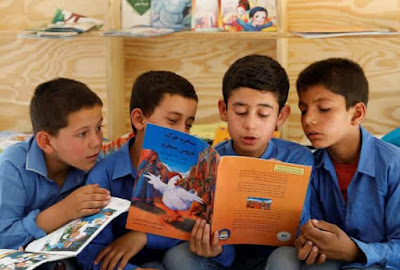Pachinko by Min Jin Lee covers a Korean woman’s life from 1932 through 1989, how she endures poverty and class discrimination after the death of her father at age 13, Japanese occupation, World War II, the Korean War and life as a marginalized citizen in Japan. The first line of this beautiful book notes, “history has failed us, but no matter.” A century of occupation, war, ethnic hatred uprooted and divided Korean families. Though gambling was illegal in Japan, Pachinko is hybrid pinball-slot game that offers recreation, dreams of fast earnings, and refuge from loveless homes. Like a game, Sunja’s survival hinges luck, timing and the ability to quickly adapt.
Sunja’s mother gets by renting cramped spaces in her small home to local workers and travelers, and the daughter helps with cooking and cleaning. While at the market, Sunja catches the eye of Hansu, a Korean mob boss with connections in Japan. “Hansu did not believe in nationalism, religion, or even love, but he trusted in education. Above all, he believed that a man must learn constantly.”
After Sunja becomes pregnant. Hansu won't leave his wife but offers support. Instead, Sunja accepts a proposal from one of her mother’s roomers, Isak, an intelligent and sickly pastor traveling to Japan to stay with his brother and work as a missionary. Skepticism runs high about such missionary work, and one character notes, “the whole religion thing was a racket for overeducated men who didn’t want to do real work.”
Both Korean and Japanese societies have rigid expectations for marriage. Sunja’s mother is criticized for marrying a man with a cleft lip. The roomers criticize Sunja for marrying a man with tuberculosis. Isak’s supervisor questions his motivation for marrying a woman pregnant with another man’s child. The older pastor warns that coincidences cannot be mistaken for the will of God. “It’s dangerous to think that everything is a sign from God. Perhaps God is always talking to us, but we don’t know how to listen.”
Koreans in Japan cannot become citizens or enjoy full rights. Minorities of any category are expected to be perfect role models: “One bad Korean ruins it for thousands of others. And one bad Christian hurts tens of thousands of Christians everywhere.”
Chance is a theme throughout the book, and the most successful characters take risks to progress. With the cusp of World War II, Sunja and her sister-in-law risk the wrath of their husbands by selling candy in the market by the train station to pay off the debts associated with Isak's travel from Korea.
Sunja’s has two sons who are opposites – Noah, son of the mob boss, is a brilliant student who assimilates into Japanese culture while Mozasu, son of the intellectual preacher – struggles in school and eventually takes a job at one of Hansu’s pachinko parlors. “Every morning, Mozasu and his men tinkered with the machines to fix the outcomes – there could only be a few winners and a lot of losers. And yet we played on, because we had hope that we might be the lucky ones. How could you get angry at the ones who wanted to be in the game?”
Japanese society largely disdains pachinko and the Koreans who often run the parlors. Despite the discrimination, Japanese and Korean characters fall in love, including Mozasu and Etsuko. Etsuko’s daughter struggles with addiction and disappoints her family, and Etsuko realized that she had “not taught her children to hope, to believe in the perhaps-absurd possibility that they might win. Pachinko was a foolish game, but life was not.”
Discrimination divides the family. Noa, the oldest son, is devastated to learn that he's the son of a gangster. The young man abruptly ends his studies, stops speaking with his family, moves to another town, and passes as a Japanese man to secure work: “Noa realized that this was what he wanted mot of all: to be seen as human.”
With Hansu’s help, Sanju finds Noa years later and has one last meeting before his death. Decades later, she can still feel holding the child’s hand. “The people you loved, they were always there with you, she had learned…. At those moments, it was good to be alone to hold on to him.”
Life and games of chance are about the dreams and hopes associated with winning and losing. As an elderly grandmother, Sunja reflects on her life and determines it was good. Time and time again, it's reconfirmed for Sunja that what others think about her do not matter. “Beyond the dailiness, there had been moments of shimmering beauty and some glory, too, even in this ajumma’s life. Even if no one knew, it was true.”
When it comes to assessing a life, only one judgment matters.












